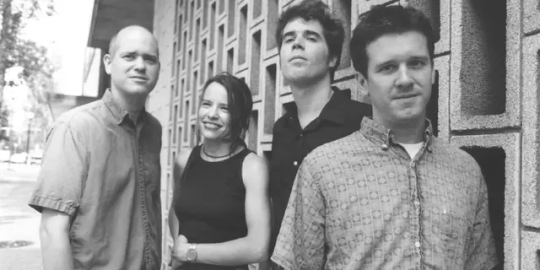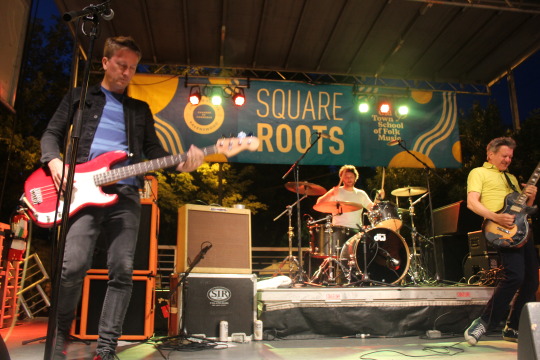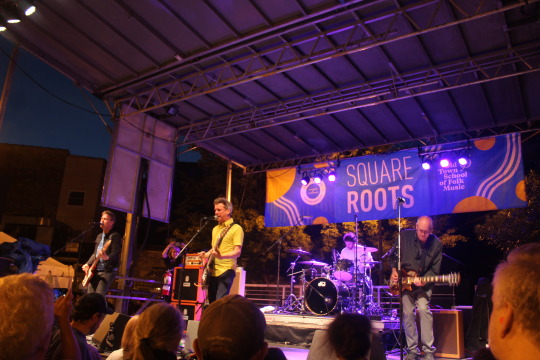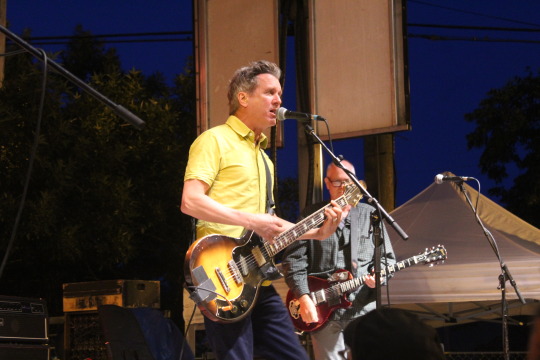#mac mccaughan
Explore tagged Tumblr posts
Text

Polvo- Cor-Crane Secret (Indie Rock, Noise Rock) Released: May 6, 1992 [Merge Records] Producer(s): Jerry Kee, Mac McCaughan, Polvo
#indie rock#noise rock#90s#1992#Polvo#Merge Records#Merge#Jerry Kee#Mac McCaughan#Can I Ride#Cor-Crane Secret
15 notes
·
View notes
Text
youtube
Superchunk - Bruised Lung
#superchunk#bruised lung#mac mccaughan#laura ballance#jim wilbur#laura king#rosali#indie punk#indie rock#pop punk#punk#punk rock#tba#2025#Youtube
2 notes
·
View notes
Text



Superchunk
Mac McCaughan, Jim Wilbur, Laura Ballance, Jon Wurster
#superchunk#indie music#indie rock#alternative rock#alternative music#rock music#punk rock#punk music#mac mccaughan#jim wilbur#laura ballance#jon wurster#chapel hill#north carolina#1990s music#1990s aesthetic#90s music#90s alternative
3 notes
·
View notes
Photo

Mac Mccaughan – The Sound of Yourself. 2021 : Merge.
! enjoy the album ★ donate a coffee !
36 notes
·
View notes
Text
race you home, portastatic (1994).
the rope has all but slackened
#race you home#some small history#portastatic#san andreas crouch#esther records#chapel hill#mac mccaughan#indie rock#emo#slowcore#slacker rock#midwest emo#lol#singsong#Bandcamp
2 notes
·
View notes
Text
Documentary "Firewall of Sound" by Devin DiMattia featuring i.a. Julian Koster and Merge Records. Premiered in Autumn 2010
(link if video isn't working; it’s Vimeo so you might need to be logged in to see it)
It's great but if you want to watch only the parts with Julian, it starts around 0:20:00, also 0:37:00 (0:35:27 for context) and 0:57:49.
2 notes
·
View notes
Text
Superchunk Live Show Review: 7/8, Square Roots, Chicago

BY JORDAN MAINZER
From the Czar Bar to the middle of Lincoln Square: Such is the story of Superchunk’s three-decade history in Chicago. Looking on at the crowd Saturday night at Square Roots, it was clear to Mac McCaughan that not many people knew what he was talking about when he mentioned the long-defunct venue. You know what, though? That’s Superchunk’s fault for attracting a new generation of fans. Since 2010, the band has released three great and one very good post-hiatus records. Saturday night, the crowd was perhaps expecting to hear more of their latest, 2022′s Wild Loneliness (Merge); instead, the set was practically two-thirds old material, including a few deep cuts, geared towards perhaps the very people at the Czar Bar in the early 90′s.

Superchunk’s brand of indie rock never went out of style. Even when baroque instrumentation pervaded the sound of the who’s who of independent music, there were always fans of power pop-bordering on-pop punk to be found, somewhere in between Cheap Trick and the Warped Tour. McCaughan and company’s earnestness never wore off. During the Aughts, the band simply wasn’t releasing music, but as soon as they did again, they returned right where they left off. All of this is to say it makes sense that Superchunk could attract a wide variety of listeners, versatility they showed off better than ever on Saturday. The gentler-than-usual lilt of What A Time To Be Alive’s “Black Thread” found a kindred spirit in the sway of “Driveway to Driveway”, while burner like On the Mouth’s “Precision Auto” mirrored the urgency of Majestry Shredding’s “Learned To Surf” and I Hate Music's shout-along anthem “Me & You & Jackie Mittoo”.

Meanwhile, the festival offered an opportunity for established bands like Superchunk to reflect on themselves and the others playing, how far all of them have come. During their set, McCaughan shouted out the stage’s previous occupants, local alt rock legends Eleventh Dream Day, as well as the Mekons’ Jon Langford and Sally Timms, who both joined Eleventh Dream Day and played a set of their own across the grounds earlier in the day. As for those who weren’t there, Superchunk dedicated No Pocky for Kitty’s “Seed Toss” to the late Rick Froberg, the Pitchfork/Drive Like Jehu/Hot Snakes lead vocalist who passed away late last month. They unexpectedly ended their set not with a no-brainer like “Slack Motherfucker” but their version of Lou Barlow’s oft-covered “Brand New Love” from their 1992 Tossing Seeds singles compilation. On Monday, I looked at the band’s setlist at Thalia Hall the following night to find there was not much crossover. For the uninitiated and the familiar, every Superchunk show is an invitation to dive in or rediscover something great that just happens to have been there the whole time.
#live music#square roots#superchunk#jim wilbur#wild loneliness#czar bar#mac mccaughan#merge#merge records#cheap trick#warped tour#what a time to be alive#on the mouth#majesty shredding#i hate music#eleventh dream day#mekons#jon langford#sally timms#no pocky for kitty#rick froberg#pitchfork#drive like jehu#hot snakes#lou barlow#tossing seeds#thalia hall
2 notes
·
View notes
Text
I think you'd like this story: "Echoes in the Sanctuary" by DaniCaliTheGirl on Wattpad https://www.wattpad.com/story/375291284?utm_source=android&utm_medium=sms&utm_content=story_info&wp_page=story_details_button&wp_uname=DaniCaliTheGirl
#REM#Laura ballance#mac mccaughan#Superchunk#merge records#Nirvana#Kurt Cobain#dave grohl#krist novoselic#Vinyl#10000 maniacs#Natalie Merchant#michael stipe#ian astbury#billy duffy#The cult#the pixies#kim deal#Vinyl records#Music#Grunge#1990#1993#1996#1999#2002#eddie munson
0 notes
Text
i know, i know, i know we said fair warning
0 notes
Text
Mary Lattimore — Goodbye Hotel Arkada (Ghostly)

Photo by Daniel Boczarski
The late poet Richard Hugo, in his slim essay collection The Triggering Town, presents a line — “That silo, filled with chorus girls and grain” — then asks us to “notice the word ‘that.’” With just this one word, we are on the scene with the poet, who is pointing at something; something palpable, something with a discernible, shape, setting, and surface. Not a silo, but that one. Even if you don’t know where precisely the poet has taken you, you know it is somewhere — and that, per Hugo, “is a source of stability” and earns the poet the authority to “indulge [their] flights” into the extraordinary. The harpist and composer Mary Lattimore’s latest album, Goodbye, Hotel Arkada, performs a similar trick. The certainty in her playing and the narrative clarity of her voice as an instrumentalist, composer, and weaver of sound convey a comparable authority and evoke the same sense of that, of somewhere — even if that somewhere lives only in the fragments of memories or the specters of dreams. Like Hugo’s poet, she points, dropping us into scenes that we believe and recognize, whether they’re real or imagined. Lattimore, like a great poet, opens a window in each song for the listener to take flights of their own.
Unlike the solitary poet that illustrates Hugo’s advice, though, Lattimore is an accomplished and frequent collaborator. She has found common cause with musicians across a wide sonic spectrum. In previous full lengths, she has mixed her harp’s erudition with artists as diverse as Superchunk’s Mac McCaughan, guitar explorer Paul Sukeena, and folk powerhouse Meg Baird, also featured here, among many others. Her experience melding the talents of disparate performers with her own comes alive on Goodbye, Hotel Arkada. While none of the six featured artists are credited on more than one track, the album has the feel of an ensemble cast. Their contributions are not just backing but lend drama and tension. This is storytelling music, complete with varied perspectives and nuanced characters.
“Arrivederci,” track two, features ex-The Cure drummer and keyboardist, Lol Tolhurst. His synthesizer, wistful and a little chilly, and Lattimore’s harp are in conversation: positing, responding and giving way. This is a duet, a dramatic dialogue, and Tolhurst is a formidable interlocutor. He starts brightly, his chords flowing and pliant, until, after a long passage from Lattimore, which sees her begin to play with greater determination, he rejoins with scratchy, persistent bass pulses. Tolhurst’s character eventually resorts to volume over reasoning. But, rather than be crushed under the weight of the bass, Lattimore continues to play with sparkling emphasis, adding more flourish, and, apparently, getting her point across, perhaps, per the title, saying goodbye for now, as Tolhurst’s keyboard lines return to their bright, ethereal beginnings.
If “Arrivederci” was a dialogue, a plot’s catalytic disagreement, then the following track, “Blender in a Blender,” featuring the guitarist and composer Roy Montgomery, is a Greek chorus zooming out to describe a ravaged world in flux, filling in macro, expository details as the characters continue on below. The song swoops and builds for almost five minutes as ominous keyboards and somber strings bear witness to the landscape, eventually fading to a contemplative silence, until an epochal torrent of keys storms back in from some shadowcast mountain range. It is martial, a threatening, destructive surge of sound, but soon it too is gone. The echoing, driving style is pure Montgomery and immediately recalls, in pace and rhythm, the tense, controlled waves of guitar from his 1996 album, Temple IV, though without quite the extremity of those reeling provocations. On an album that so often and ably shows a nuanced darkness underneath beauty, “Blender in a Blender,” given Montgomery’s presence, feels like a missed opportunity to escalate towards something more visceral.
While most of Goodbye, Hotel Arkada’s 42 minutes are spent in the company of Lattimore and at least one other musician, for a two song stretch, starting with the appropriately named “Music for Applying Shimmering Eye Shadow” and the somehow even more appropriately named “Horses, Glossy on the Hill,” Lattimore is showcased alone. Both have their moments: “Music…” finds a calm, evocative fullness in the trio of twinkling harp, bright but enveloping synths, and Lattimore’s textural breath, but it’s ”Horses…” that’s the standout performance, perhaps the most theatrical piece on a very theatrical album. It starts with knocks that can be nothing but the hooves of the eponymous horses, soon joined by Lattimore’s stuttering harp, which plinks just out of step, struggling but steady, just able to keep pace with the cavalcade. The line finds its stride in a passage of bright picking and strumming that’s ukulele-like in its taut simplicity. The climax is a stream of consciousness: echos and reverb, a blossoming, articulate medley of sound that loses none of its heft or form in the rush. While Lattimore’s effects pedals are a hallmark of her work and present throughout the album, “Horses, Glossy on the Hill,” stands out on Goodbye, Hotel Arkada for the vigor and intricacy with which she applies them, and for the complete vision she’s capable of conjuring in a soliloquy.
Delightful and inventive as Lattimore is on her own, Goodbye, Hotel Arkada is still most remarkable for its collective efforts. In the opening track, “And Then He Wrapped His Wings Around Me,” the accordionist Walt McClements’ nuanced drone and Baird’s articulate, wordless vocals, like Tolhurst’s keys, seem to inspire a greater tenacity in Lattimore’s playing, glissandi grow more insistent and her riffs more oratorial. In the closing track, “Yesterday’s Parties,” too, the presence of Slowdive’s Rachel Goswell vocals and Samara Lubelski’s luminous violin create a lovely, highly reflective fog that Lattimore’s playing reflects from, vibrant and beautiful into a controlled squall at the end. A Bandcamp supporter of Lattimore’s wrote, about her work with the drone group GROWING, that the music “highlights each participant’s strengths while bringing forth something new and wondrous.” This is also an apt description of Goodbye, Hotel Arkada, an album that, without lyrics, tells its stories with many voices and in a poetry that feels tangible, even as it transforms in front of us, catching more light in its sound as it blooms.
Alex Johnson
#mary lattimore#goodbye hotel arkada#ghostly international#alex johnson#albumreview#dusted magazine#harp#lol tolhurst#roy montgomery#meg baird#walt mcclements#rachel goswell#samara lubelski#Bandcamp
2 notes
·
View notes
Text
THROWBACK THURSDAY #41!- The 6ths – Wasps’ Nests (1995-London)

It was 1995 and the Magnetic Fields were flying high, at least in my household. The year before they had released not one, but two brilliant albums, Holiday and The Charm of the Highway Strip. What was leader Stephin Merritt supposed to do next?
He wrote another album full of quirky/catchy synth music and got different vocalists to sing on each one (Merritt did sing on one of the songs) and boom, Wasps’ Nests was born!
The first song is the great “San Diego Zoo” where Barbara Manning sings and it’s one of his best (and the lyrics will get you to the zoo if you are in S.D.) as is the next one, “Aging Spinsters” (the one where Merritt sings in his classic, droll vocal delivery), another ace Merritt tune,
“All Dressed Up In Dreams,” sung by Helium’s Mary Timony is probably my favorite song on here with a unbelievably magical feel (“I waited by the door but you never even called to tell me you don’t love me anymore”). Another corker on here is the bouncy “Movies In My Head” (sung by Yo la Tengo’s Georgia Hubley). and slightly darker “Heaven in a Black Leather Jacket” sung by The Bats’ Robert Scott. Again, these are brilliant Stephin Merritt pop songs brought to life by the individual vocalists.
Some of the other vocalists on these songs include Luna’s Dean Wareham, Sebadoh’s Lou Barlow, Superchunk’s Mac McCaughan Heavenly’s Amelia Fletcher and plenty more. I think this whole thing is brilliant.
There was a 2nd volume a few years later that was good, but not nearly as good as this. Wasps’ Nests is thee one!
www.the6ths.bandcamp.com

3 notes
·
View notes
Text

I don't think I'll ever be over this actually. This is a "meeting Mac McCaughan" level moment for me. Aly and AJ know I exist and that I love their music?
1 note
·
View note
Text
youtube
Superchunk - Why do you Have to Put a Date on Everything?
#superchunk#why do you have to put a date on everything?#mac mccaughan#laura ballance#jim wilbur#jon wurster#indie punk#indie rock#punk#punk rock#foolish#1994#Youtube
3 notes
·
View notes
Text




Thursday, 1 February 2024:
Misfits & Mistakes: Singles, B-Sides & Strays 2007-2023 Superchunk (Merge) (Released 27 October 2023)
Superchunk's fourth compilation of their singles, B-Sides and tracks off tribute albums or other albums not found on a Superchunk album was released last year. It's funny because their first singles compilation, Tossing Seeds (Singles 89-91) came out in 1992 and was a single LP. Their second singles comp, Incidental Music 1991-95 came out in 1995 and was a double LP. When their third singles comp, Cup of Sand came out on vinyl in 2017 it was a triple LP (it had originally been released as a double CD set in 2003). And now their newest singles comp is a four LP set! (Someone how I own all of these compilations on LP except for the very first album, which I only own on CD.
Above you see the album cover and the back of the album. The next two photos following that are of either spine. I'll be looking at that top spine for the remainder of my days! (I ended up with this because of the big box store we all tend to hate yet still order from on occasion was selling it for a mere $40. It actually retails for twice that amount!)
Since this is a quadruple album, it is packaged as two double albums inside a slipcase. The first thing you will see in the photos below is the album cover of album #1 (with bassist Laura Ballance on the cover), followed by the gatefold, then you will see the back of the album (with guitarist Jim Wilbur on the back).



The next four pictures reveal all four sides of the record labels.




Each album contains a poster. The photo below shows you what the first poster looks like.

Next up is the second album: the cover (featuring guitarist Mac McCaughan), the gatefold and then the back of the album (featuring drummer Jon Wurster).



The next four photos show you all four sides of the record labels.




The next photo is the second poster found in this second album.

The final photo is a close up of the hype sticker on the album cover.

0 notes
Text
Most Interesting Christmas- & Winter Special 2023 - Tape 02/02

Billie Eilish - Have Yourself a Merry Little Christmas (Live) Coco & Clair Clair - Last Christmas SOECKERS - WIE DER SCHNEE Porno for Pyros - Pete's Dad Ali Spagnola - All the Small Things (but it's a CHRISTMAS SONG) Ryan Gosling & Mark Ronson - I'm Just Ken (Merry Kristmas Barbie) Bright Eyes feat. John Prine - Christmas in Prison Lil Tjay & Fivio Foreign - Last Christmas SPRING SUMMER (feat. Mac McCaughan) - Holiday Dream Lary x Patrice - All I want for Christmas is The Philly Specials - Fairytale Of Philadelphia Melodicka Bros - LAST CHRISTMAS Barbara Neuhauser - SCHNEE (A WINTER LULLABY) Leo Moracchioli - Feliz Navidad
1 note
·
View note
Text
The Ledge #598: Best Reissues, Compilations, etc. of 2023
It's the time of year for everybody to unveil their various lists of the best records of the year, so here is the unveiling of the first part of my lists. This week's show features a countdown of my 20 favorite reissues, box sets, live albums, compilations, and tribute albums of 2023. Look for a similar countdown of my 40 favorite new albums of the year in two weeks.
But that doesn't mean we're ignoring the "52 Weeks of Teenage Kicks" series. Once again, we're opening and closing the show with covers of the classic. The opening version is by Superchunk leader Mac McCaughan, recorded live on May 16, 2015. The closing remake is by a Canadian band called 63 Monroe who released a couple of EP's and singles back in the early 80's.
Like I do every week, however, I must again plead with y'all for more versions of "Teenage Kicks". If you are a musician, or have any contact with artists that could record their own take on the classic, please contact me!
CLICK HERE TO DOWNLOAD THE SHOW!
1. Mac McCaughan - Teenage Kicks
2. Replacements - I'm In Trouble
3. Curtiss A - I Don't Want To Be President
4. Embarrassment - Sex Drive
5. Crime - Hot Wire My Heart
6. Sonic Youth - Sugar Kane (Live in Brooklyn, Ny)
7. Iggy & The Stooges - I Got a Right (Outtake from Early Aborted Raw Power Session)
8. The Dream Syndicate - That's What You Always Say
9. Talking Heads - Thank You for Sending Me an Angel (Live) (2023 Remaster)
10. The Who - Pure And Easy (Lifehouse Chronicles / Home Studio Mix)
11. Nick Piunti - Til The End of The Day
12. The Brains / Rezurex - Goo Goo Muck
13. The Exploding Hearts - Modern Kicks (2023 Remaster)
14. The Jesus And Mary Chain - Sometimes Always (feat. Isobel Campbell)
15. The Ramones - I Can't Get You Out Of My Mind
16. Hüsker Dü - Statues
17. The Litter - Action Woman
18. Chocolate Watch Band - Let's Talk About Girls
19. The Lollipop Shoppe - You Must Be A Witch
20. Evil - Whatcha Gonna Do About It
21. Cat Power - Leopard-Skin Pill-Box Hat
22. Bob Dylan - Not Dark Yet (Version 2)
23. Geoff Palmer - Big Mouth
24. The Feelies - Sweet Jane
25. Superchunk - Learned to Surf
26. The Beatles - Day Tripper (2023 Mix)
27. The Replacements - Left of the Dial (Ed Stasium Mix)
28. The Replacements - Nowhere Is My Home (Alternate Mix)
29. The Replacements - Can't Hardly Wait (Electric Demo) (Alternate Mix)
30. The Replacements - Color Me Impressed (Live at the Cabaret Metro, Chicago, IL, 1/11/86)
31. 63 Monroe - Teenage Kicks
0 notes